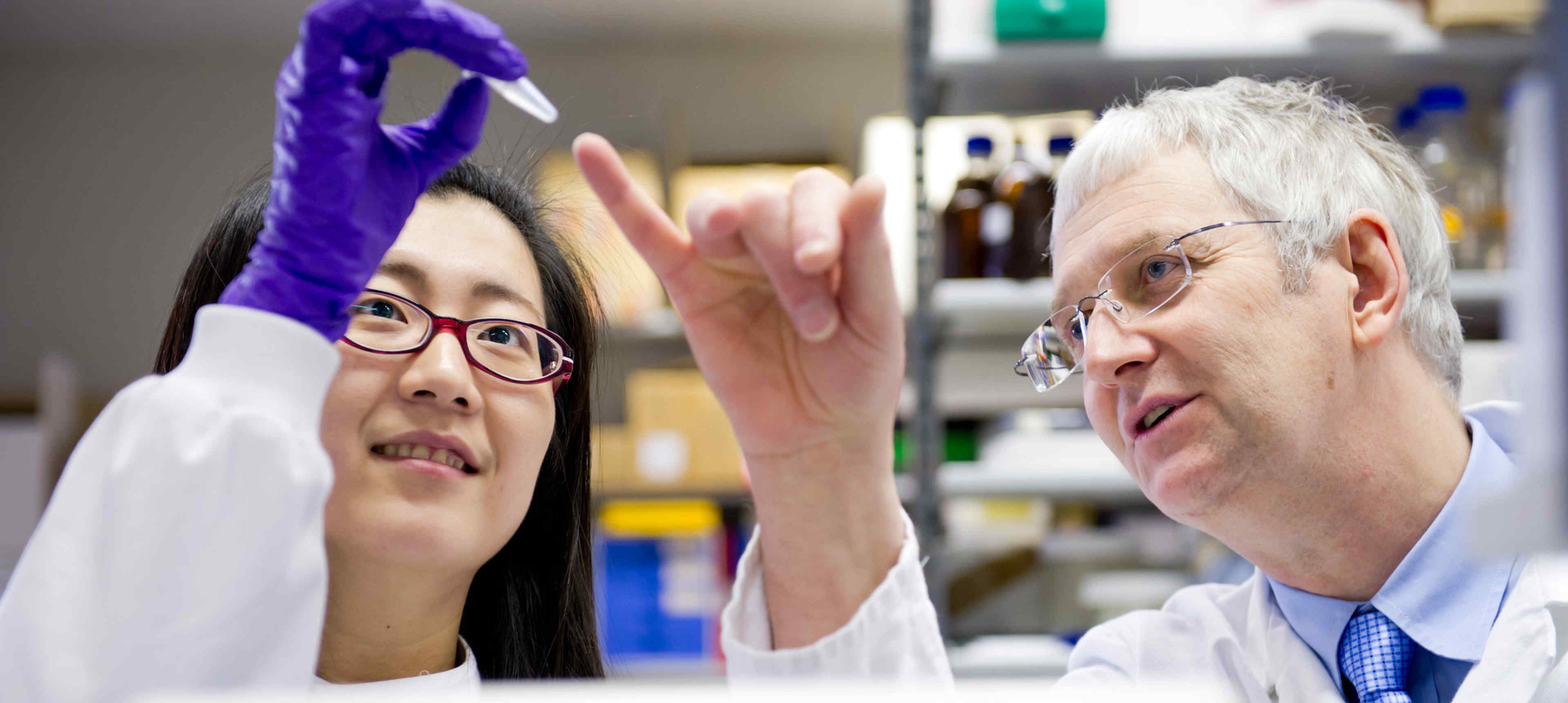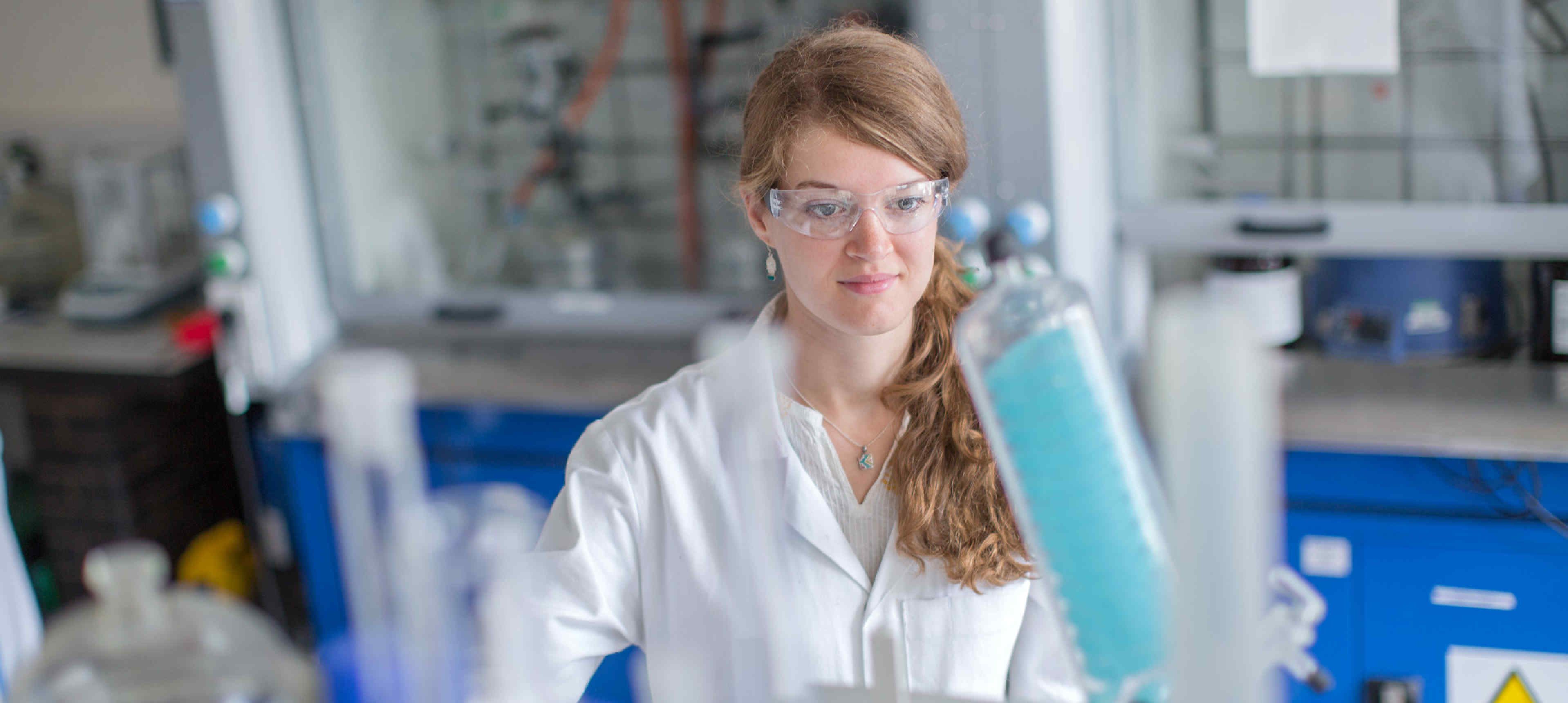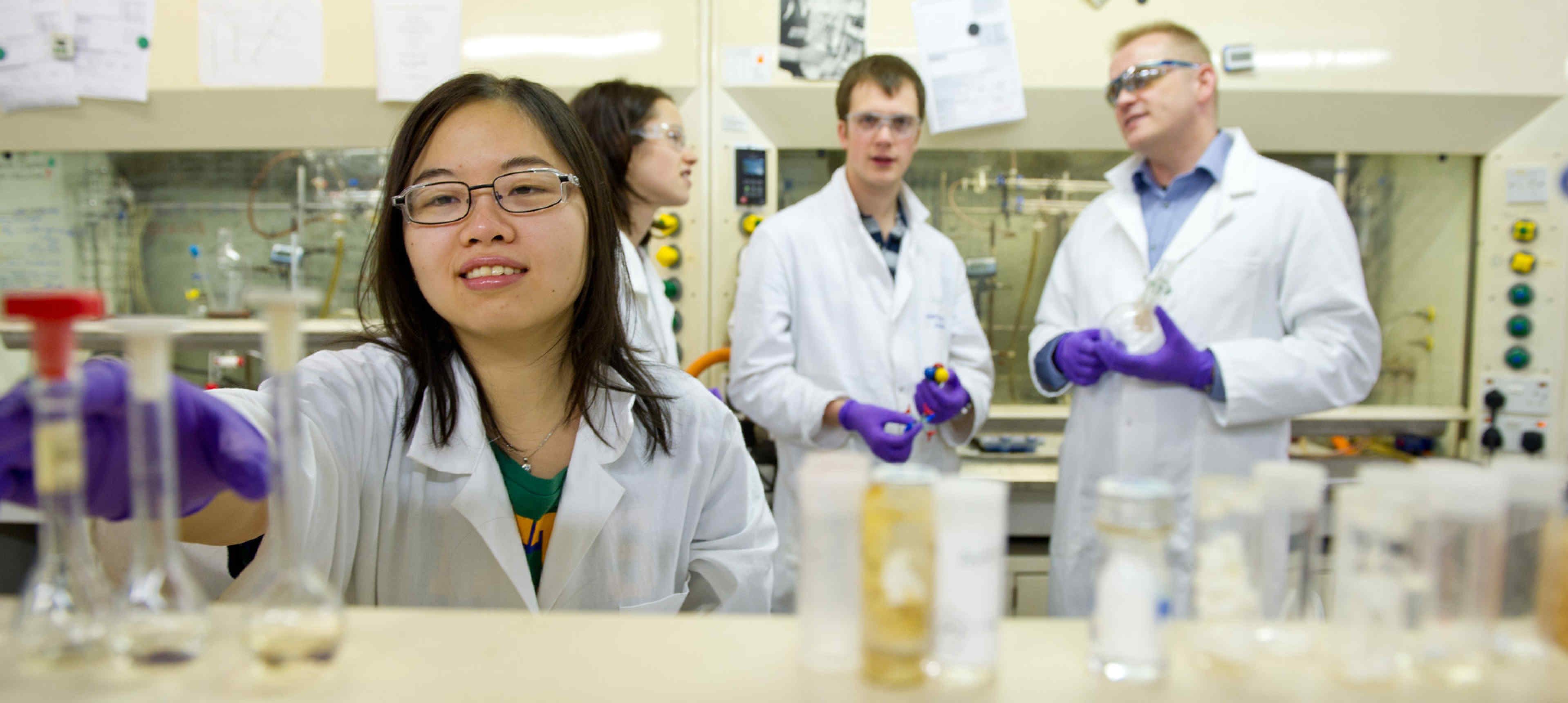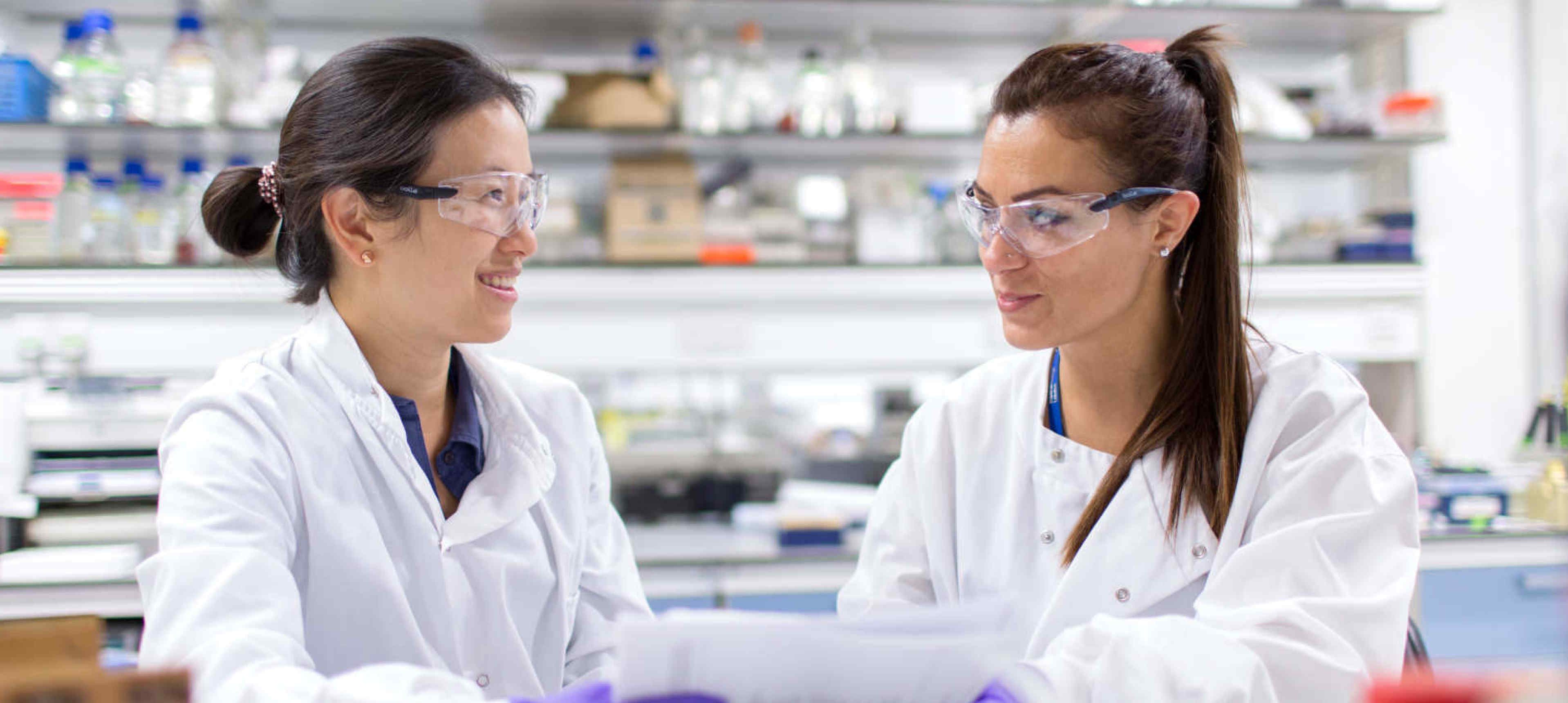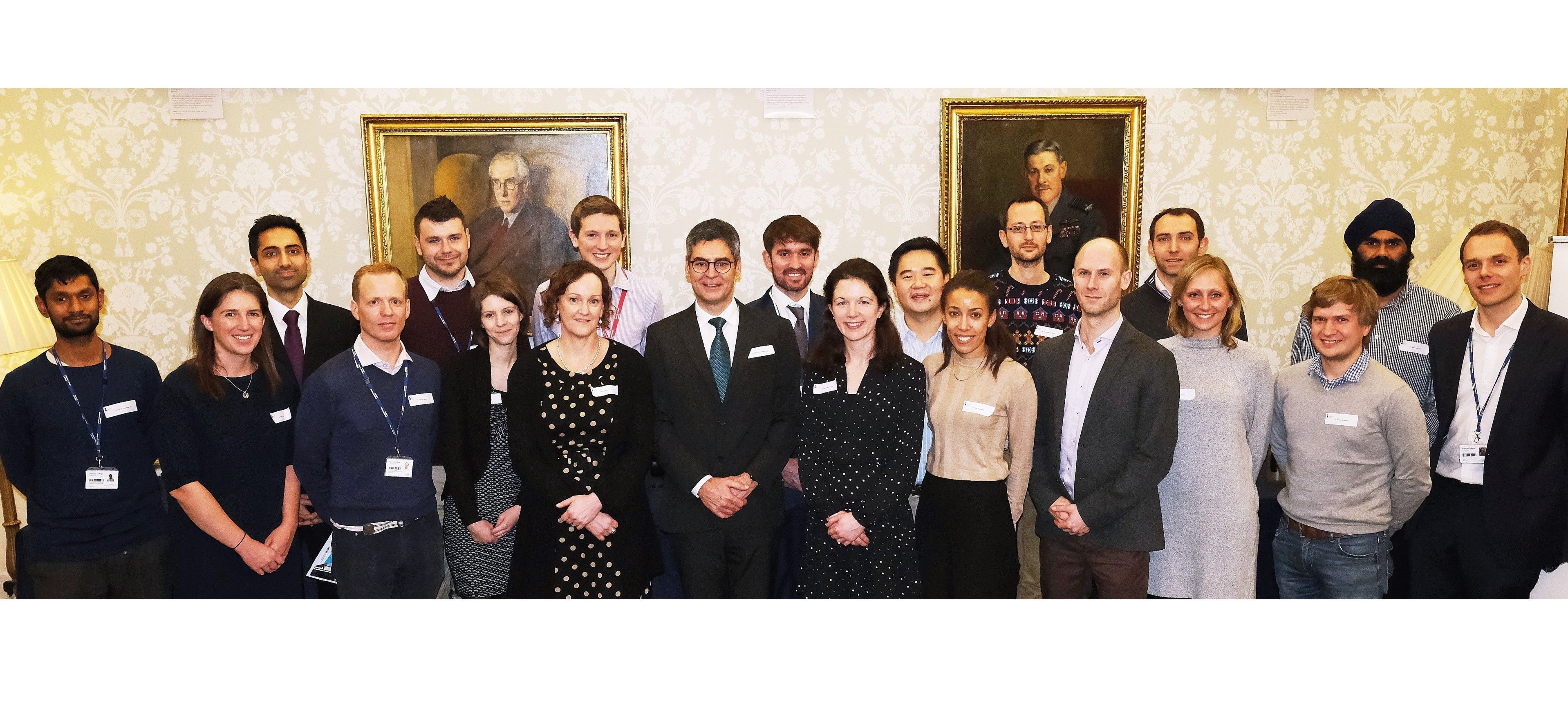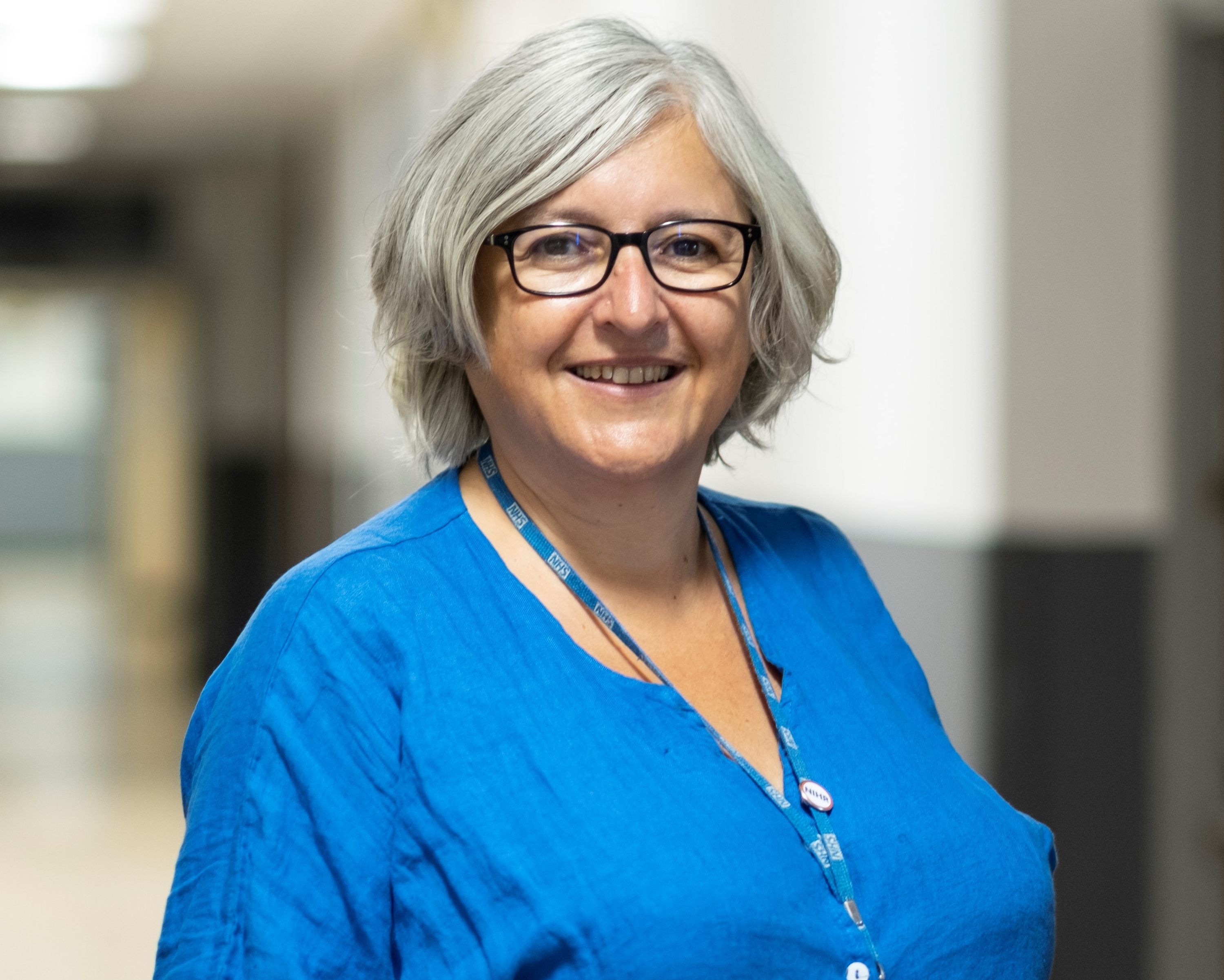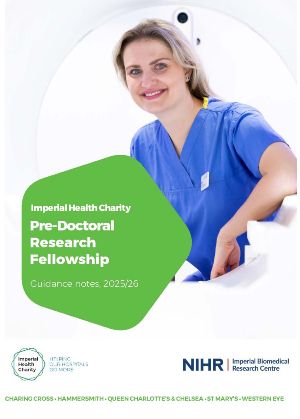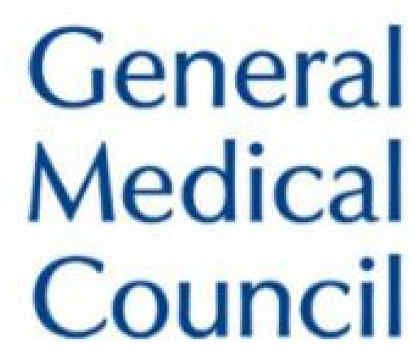Key features
Our 4i Clinical PhD Programmes are typically 3 years in duration and funding provides:
- A clinical salary
- PhD registration fees at the UK/EU rate
- Research expenses
** The Wellcome Trust Imperial 4i programme runs from 2017-2022. The scheme is hugely successful, appointing talented clinicians to 18 WT funded and 10 other funded posts across the five year funding period. The last intake of 4i Fellows was appointed in January 2021 and there will be no further recruitment to this programme **
For details of Wellcome Trust funded PhD Fellowships available 2022-2027 visit the Wellcome website
Imperial College London is keen to attract and cultivate the most promising clinical academic researchers at all stages of their careers. The Faculty of Medicine is one of the largest in Europe and is at the forefront of translating biomedical discoveries into patient benefit.
Available annually, we have a number of funded PhD programme fellowships for clinicians. Our doctoral training programmes immerse researchers in world-leading scientific discovery and its translation, focussing on the academic strengths of Imperial that are relevant to all major health problems. Our schemes enable early career success by placing talented individuals in a highly supportive environment and providing each fellow with cutting-edge research projects under experienced supervision and mentorship, regardless of the potential clinical specialty of the applicant.
Applications are invited from exceptional medical graduates who demonstrate a commitment to a research career and aspire to become the next generation of clinical academic leaders to join our prestigious PhD Fellowship programmes. Applicants must be fully qualified medical doctors in training in the UK and at Core Training or Internal Medicine (IMT) level or above (or in GP Training), in any specialty. GP Trainees may apply if within 12 months of having CCT.
Accordion widget - Wellcome Trust
- The Wellcome 4i Clinical PhD Programme
- ICCIS and LFFMS Clinical PhD schemes
- The British Heart Foundation Fellowships
- AI for Healthcare - UKRI Centre for Doctoral Training
- Recruitment information
- Supervisors and projects
- Supporting academic leaders of the future
Our aim is to develop the clinical academic leaders of the future. The clinician scientist, through education and training in both biomedical science and clinical medicine, is uniquely positioned to develop key insights and identify knowledge gaps between biomedical research and clinical practice.
The Imperial Immunity, Inflammation, Infection and Informatics (4i) programme offers an unparalleled and comprehensive portfolio of high quality internationally competitive research fellowships.
The Imperial Clinician Scientist programme focuses on the academic strengths of the College that are relevant to major health problems: Immunity, Inflammation, Infection and Informatics.
We have shaped our scheme to enable ‘early career success’ by placing talented individuals in a highly supportive environment and providing each individual with cutting-edge research projects under experienced supervision and mentorship.
Through joint appointments and satellite laboratories with the Francis Crick Institute, our programme can offer training opportunities within this interdisciplinary biomedical research institute. There is also the opportunity of training in the Lee Kong Chian School of Medicine, which is jointly managed by Imperial College and Nanyang Technological University, Singapore.
Successful candidates will be selected on the basis of academic potential, regardless of clinical specialty and matched to projects and supervisors during exploratory discussions with our PhD Programmes selection panel.
We will NOT be recruiting fellows to these schemes in Autumn 2021 .
Both the Imperial College Clinician-Investigator Scholarship, ICCIS (generously funded by a private donor) and The Lee Family Faculty of Medicine Scholarships, LFFMS (funded through generous gift from the Lee Charitable Foundation) support doctors demonstrating exceptional clinical academic merit and potential and who wish to undertake rigorous research training within the Faculty of Medicine working in partnership with its NHS partners in the Imperial College AHSC. ICCIS and LFFMS funded fellows are not expected to identify research projects prior to applying and have the option to undertake research projects under the Immunity, Inflammation, Infection and Informatics 4i research themes, or to go beyond the parameters of the themes, providing the project focuses on the academic strengths of Imperial and there is agreement to do so.
Successful candidates will be selected on the basis of academic potential, regardless of clinical specialty, and matched to projects and supervisors during exploratory discussions with our PhD Programmes selection panel.
The British Heart Foundation fellowships: AI in cardiovascular science
The British Heart Foundation has pioneered initiatives to bring together cardiovascular and non-biological science with their Centres of Excellence scheme. During 2020 they have funded a £4M Centre of Excellence at Imperial to harness the interactions between cardiovascular science, bioengineering, advanced imaging and Artificial Intelligence. PhD students will join multidisciplinary teams based in our state of the art buildings on the Imperial Hammersmith and White City Campus to use these interactions to produce new therapies and diagnostic tools. British Heart Foundation Centre of Research Excellence
The Centre’s vision is to train a new-generation of innovators in Artificial Intelligence (AI) applied to Healthcare and is inviting applications from clinical PhD fellows, along with non-clinical PhDs.
We take the view that AI is ultimately a question about how to realise artificial systems that solve problems presently requiring human intelligence to solve (e.g. problems solved by clinicians, nurses and therapists). The contemporary answer to the AI research question is machine learning, i.e. learning how to solve the problem from experience instead of programming it. Learning in turn requires data, which extends our view of AI to encompass also data science and data engineering. However, AI in our Centre implies an entire system that solves a practical (healthcare) problem, this may require combining different algorithmic and representational approaches that encompass machine learning, robotics, optimisation, symbolic reasoning, natural language processing, and computer vision. Our training outcomes are AI researchers who have learned to move fluidly across the disciplinary AI/healthcare boundaries and can develop and implement deployable solutions with the ultimate goal to transform patient treatment.
The training programme offers expert supervision (each doctoral researcher will have at least 1 AI and 1 clinical supervisor), cohort and integrated training. The clinical supervisors and healthcare partners span the full breadth of healthcare challenges facing society, such as dementia, brain and mental health, infectious diseases, cancer and surgery, obesity and diabetes, cardiovascular and lung diseases, intensive care and primary care.
This programme is separate to the 4i scheme, please visit the AI for Health website for further details and how to apply https://ai4health.io/
The Wellcome Trust 4i Programme award was very successful, with 5 cohorts of fellows starting annually from 2017-2021. Please note that we are no longer recruiting to this scheme.
Our supervisors are independent clinical and non-clinical scientists, who are leading high-quality research programmes within the portfolio of the 4i theme. We have high-quality researchers across the 4i themes, including a large number of Wellcome Trust Investigators, located across different faculties of the College and within the MRC LMS and Francis Crick Institute. Our overall strategy is to offer a wide range of research projects within the 4i domains so that we can attract and accommodate a broad range of applicants.
Celebrating the Imperial 4i Clinician Scientist Training Programme event: December 2019
As 2019 drew to a close, the Imperial 4i PhD Fellows came together with colleagues from across the College, Imperial College AHSC and funding bodies to celebrate their research and achievements. Taking place at South Kensington’s historic 170 Queen’s Gate just before Christmas, the event featured a thought-provoking keynote talk from Professor Sir Mark Walport on 'The future landscape of biomedical science’ and engaging presentations from our 2017 intake of Fellows on how their research has progressed so far. Other Fellows on the programme also displayed posters presenting their research topics and took the opportunity to discuss their research and catch up over refreshments and wine at the end of the showcase.
Follow this link to see the College news story about the event: https://www.imperial.ac.uk/news/194956/imperial-researchers-showcase-projects-tackle-major/

Our Fellows 2021

Dr Joe Zhang
Characterising function and impact from national clinical data flows and lifecycles (Prof Darzi, Prof Delaney, Dr Ashrafian)

Dr Lara Curran
Phenoclustering of Left Ventricular Hypertrophy using machine-learning approaches (Prof Prasad, Prof O'Regan and Dr Ware)

Dr Thomas Beaney
Characterising clusters of multimorbidity and associations with clinical outcomes and healthcare utilisation-Prof Aylin,Barahona & Majeed, Dr Woodcock
Our 2020 Fellows (Wellcome Trust, LFFMS & BHF)

Dr Andrew Porter
Investigation of the role of adenosine deaminase 2 in monocyte and endothelial homeostasis and in the pathogenesis of vascular injury

Dr Finneas Catling
Early diagnosis and decision support in septic shock using physiologically-grounded latent variable models (Prof Gordon and Dr Harris)

Dr Katherine Josephs
Understanding the Genetic Architecture of Paediatric Cardiomyopathies (Dr Ware, Dr Thomas, Dr Roberts)

Dr Sean Zheng
Understanding the genomic and transcriptomic landscape of cardiomyopathy (Dr Ware, Dr Noseda & Prof Cook)

Dr Stefan Ebmeier
Recovery from Plasmodium falciparum malaria: an exploration of trajectories and underlying mechanisms' (Dr Cunnington, Dr Kaforou, Prof Barahona)

Dr Tamara Elliott
Characterisation of immune responses to vaccination against SARS-CoV-2 - Prof Shattock, Prof Fidler, Dr Harker
Our 2019 Fellows (Wellcome Trust and NIHR Imperial BRC)

Dr Adam Hartley
Cardiology - 'Targeting oxidised LDL in atherosclerotic plaque with antibody-based constructs for imaging and therapeutics' (Dr Khamis, Prof Haskard)

Dr Jonathan Pearson-Stuttard
Public Health - 'Trends in complications, morbidity and cause of death in diabetes patients in England' (Prof Majid Ezzati and Prof Edward Gregg)

Dr Kartik Kumar
Respiratory Medicine - 'Metatranscriptomics in non-tuberculous mycobacterial pulmonary disease' (Prof Cookson, Moffatt & Loebinger, Dr Cuthbertson)

Dr Lisa Blundell
Infectious Disease/ Microbiology 'Understanding how Salmonella interferes with the adaptive immune system' (Prof David Holden and Dr Teresa Thurston)

Dr Mark Sweeney
Cardiology - 'Investigating the interplay between interleukin-11 and senescence in cardio-renal aging' (Prof Stuart Cook and Prof Jesus Gil)
Our 2018 Fellows (Wellcome Trust, NIHR Imperial BRC, ICCIS & LFFMS)

Dr Andrew McArdle
Paediatrics - ‘Identifying an infectious aetiology of Kawasaki Disease through integrative metagenomics’ (Prof Levin, Dr Kaforou, Prof Barahona)

Dr Charlotte Hateley
Gastroenterology - ‘The impact of hepatic macrophages on HBV disease pathogenesis’ (Dr Dorner, Dr Ortega-Prieto, Prof Thursz)
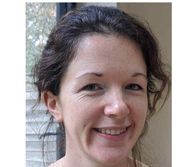
Dr Claire Broderick
Microbiology - ‘The role of viral coinfection in the progression of Mycobacterium tuberculosis infection in children’ (Prof Levin, Dr Newton)
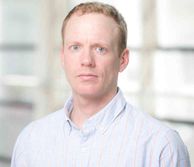
Dr George Adams
Haematology - ‘Bone Marrow dynamics in mouse and human models of immune-mediated thrombocytopenia’ (Dr Cristina Lo Celso, Dr Nichola Cooper)

Dr Jonathan Lim
Medical Oncology - ‘Dendritic cells in the initiation of anti-cancer immunity’ (Prof Caetano Reis e Sousa (Crick), Dr Jessica Strid)

Dr Keir Philip
Respiratory Medicine/General Internal Medicine - ‘Physical performance and physical activity in COPD’ (Dr Hopkinson, Dr Man, Prof Polkey)

Dr Ruthiran Kugathasan
Infectious Diseases/Microbiology - ‘Evolution of modern H3N2 influenza A viruses’ (Prof Wendy Barclay)

Dr Sarah Bowden
Obs & Gynae -‘Genetic and epigenetic determinants of cervical pre-invasive disease and its progression’ (Dr Kyrgiou, Flanagan, Chadeau-Hyam)
Our 2017 Fellows (Wellcome Trust 4i and ICCIS)

Dr Clare Wilson
Paediatrics - ‘Does Factor H contribute to severity of Malaria in East Africa?’ (Prof Mike Levin, Prof Kathryn Maitland)

Dr Dipender Gill
Clinical Pharmacology - ‘Causal mechanisms in stroke subtypes.’ (Dr Abbas Dehgan & Dr Ioanna Tzoulaki)

Dr James Howard
Cardiology - ‘Applications of machine learning in clinical cardiovascular imaging ’ (Professor Darryl Francis and Professor Daniel Rueckert)

Dr Laura Watts
Rheumatology - ‘The role of Fubp3 in the pathogenesis of osteoporosis’ (Professor Graham Williams and Professor Duncan Bassett)

Dr Nicholas Quaife
Cardiology - ‘Evaluation of Novel Noncoding Determinants of Myocardial Fibrosis’ (Professor Stuart Cook & Dr Paul Barton)

Dr Richard Hewitt
Respiratory Medicine - 'Epithelial-immune interactions driving the development of pulmonary fibrosis’ (Prof Lloyd, Prof Maher & Dr Byrne)
Useful links
Contact us
The CATO Team and Radiographers Incubator work on a Hybrid model, combining days in the office with days working from home – the best way to reach us is by email.
cato@imperial.ac.uk
radresearch@imperial.ac.uk
+44 (0)20 3313 7397

